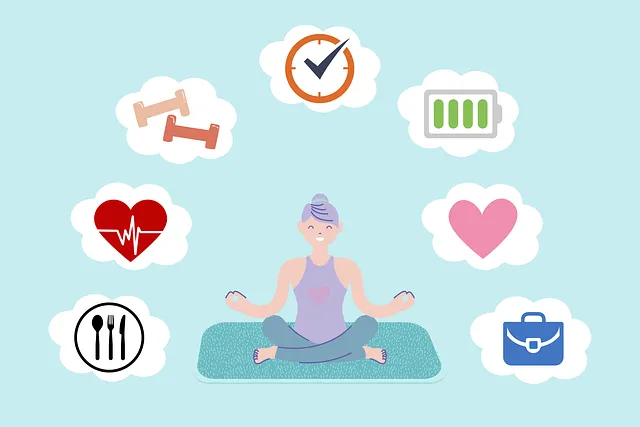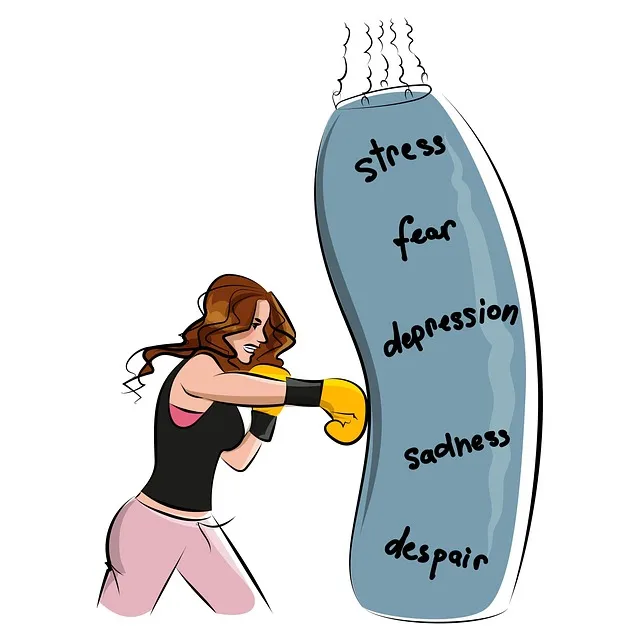The text highlights Kaiser Boulder's leadership in making mental health care more accessible through innovative coaching programs. These personalized programs focus on developing positive thinking, empathy, and emotional intelligence, fostering mental resilience. With a digital twist, they offer virtual coaching tailored to diverse needs, leveraging technology to reach a broader audience. Success is measured through KPIs and client feedback, ensuring continuous improvement in services like Anxiety Relief and Emotional Regulation. Learn how to access these comprehensive mental health services through Kaiser Boulder for improved well-being.
Mental wellness coaching programs are gaining traction as a vital tool in addressing the growing need for accessible mental health support. This article explores the development of such programs, focusing on strategies like Kaiser Boulder’s innovative approach to providing affordable care. We’ll delve into designing effective coaching models, leveraging technology for wider reach, and measuring success. Discover how these steps can enhance mental wellness accessibility, especially through Kaiser Boulder’s services, offering a promising path forward.
- Understanding the Growing Need for Mental Wellness Coaching
- Kaiser Boulder's Role in Providing Accessible Mental Health Services
- Designing Effective Mental Wellness Coaching Programs
- Integrating Technology to Reach a Wider Audience
- Measuring Success and Ensuring Continuous Improvement
Understanding the Growing Need for Mental Wellness Coaching

In today’s fast-paced world, the demand for mental wellness coaching has surged, highlighting a growing need to support individuals in navigating their emotional healing processes. Kaiser Boulder, known for its comprehensive healthcare services, recognizes this trend and is at the forefront of making mental health care more accessible, including through innovative coaching programs. The shift towards prioritizing mental wellness is evident as folks increasingly seek ways to enhance their positive thinking and develop empathy-building strategies, all of which are key components in any successful coaching journey.
This rising demand underscores a significant change in societal perception of mental health issues, with many now understanding the profound impact of emotional well-being on overall health. As such, programs that offer personalized guidance and support, like those developed by Kaiser Boulder, play a crucial role in fostering better mental resilience among individuals seeking to transform their lives.
Kaiser Boulder's Role in Providing Accessible Mental Health Services

Kaiser Boulder stands as a beacon of hope and accessibility when it comes to mental health services. This healthcare provider offers comprehensive programs designed to support individuals in navigating their emotional well-being, with a particular focus on coping skills development and emotional intelligence. Through innovative initiatives, they ensure that services are readily available to those in need, breaking down barriers commonly associated with seeking help.
One notable aspect of Kaiser Boulder’s approach is its commitment to burnout prevention strategies for healthcare providers. Recognizing the unique challenges faced by medical professionals, they’ve integrated programs aimed at promoting work-life balance and fostering resilience. These initiatives not only benefit healthcare workers but also have a positive ripple effect on the care they provide, ensuring that mental wellness coaching remains an integral part of their service offerings.
Designing Effective Mental Wellness Coaching Programs

Designing effective mental wellness coaching programs involves understanding the unique needs of individuals seeking support. According to Kaiser Boulder, accessing mental health services is a crucial step in promoting overall well-being. Coaches play a vital role in guiding clients towards self-improvement and resilience. One key aspect is tailoring programs to address specific concerns; whether it’s enhancing self-esteem or implementing burnout prevention strategies for healthcare providers, personalized coaching yields better results.
A comprehensive approach should incorporate various techniques such as active listening, goal setting, and evidence-based practices. Incorporating these methods into a structured yet flexible framework ensures clients receive consistent support. Additionally, leveraging modern tools like mental wellness podcast series production can expand reach and accessibility, enabling more individuals to benefit from professional guidance and fostering an environment of open dialogue and education.
Integrating Technology to Reach a Wider Audience

In today’s digital era, integrating technology has become a powerful tool to reach and support a wider audience seeking mental wellness services. Online platforms and mobile applications are revolutionizing how individuals access care, breaking down traditional barriers. Kaiser Boulder, for instance, has recognized this shift by utilizing digital tools to expand their offerings, ensuring that more people can benefit from evidence-based practices. By implementing virtual coaching programs, they can now provide personalized support for various mental health concerns, including depression prevention and self-esteem improvement, catering to those who prefer remote access or face challenges in attending in-person sessions.
This approach allows for increased accessibility, especially for individuals living in remote areas or those with busy schedules. Through innovative technology, Kaiser Boulder can deliver the Mind Over Matter Principles effectively, enabling clients to engage in coaching from the comfort of their homes. This strategy not only expands their reach but also empowers people to take charge of their mental wellness, fostering a sense of independence and self-care.
Measuring Success and Ensuring Continuous Improvement

Measuring success is a vital component of any mental wellness coaching program. It involves tracking key performance indicators (KPIs) to assess if participants are achieving their goals and benefiting from the sessions. One effective way to do this is by utilizing client feedback through surveys or interviews, which can provide valuable insights into their experiences and perceived improvements in areas like Anxiety Relief, Emotional Regulation, and overall life satisfaction. Additionally, comparing pre- and post-program assessments can help quantify changes in mental health status.
Ensuring continuous improvement requires regular review of program effectiveness. This involves analyzing the collected data to identify trends, strengths, and weaknesses. For instance, if many participants struggle with a specific aspect of their coaching journey, it might signal a need for enhanced training or resources related to that area. Moreover, integrating feedback from both clients and mental health professionals can facilitate Risk Management Planning, ensuring the program stays relevant and beneficial for those seeking Kaiser Boulder’s mental health services.
Mental wellness coaching programs, as exemplified by Kaiser Boulder’s initiatives, offer a promising approach to enhancing mental health access and support. By combining personalized guidance with innovative technology, these programs can help individuals navigate their mental health journeys effectively. As the demand for such services continues to grow, adopting evidence-based strategies and leveraging technology will be key to reaching a wider audience. Understanding how to measure success and continuously improve these programs ensures that they remain impactful and accessible, ultimately fostering better mental wellness outcomes for all.






